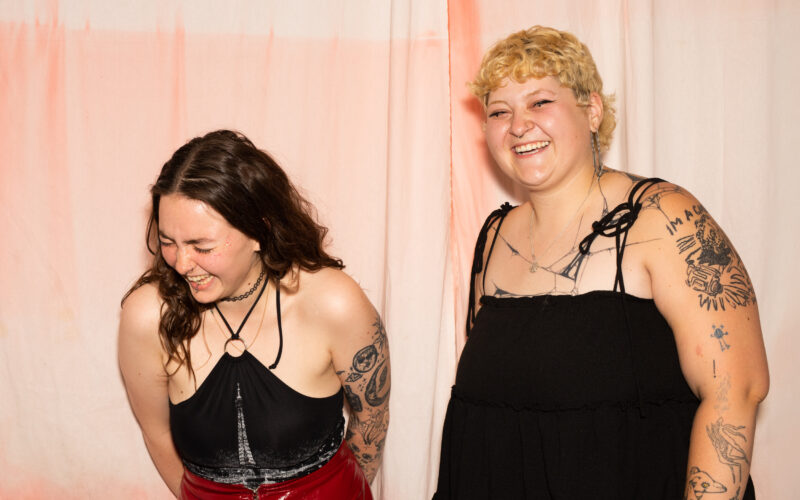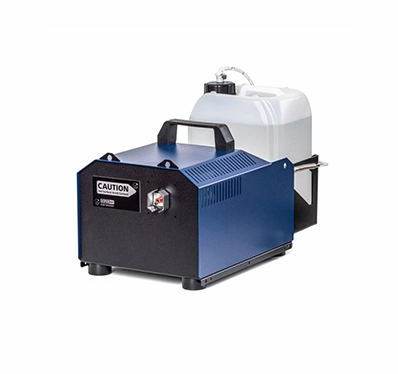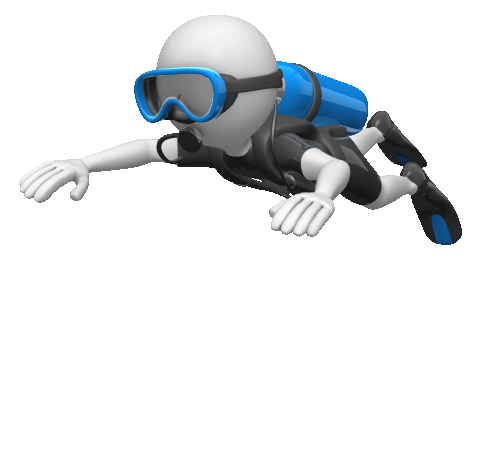Interview with Kris Baha
We had the chance to have a quick talk with the Australian producer and DJ before his expected live set in Ankali this Friday. For those not familiar with him, he’s an ambitious and talented musician that has established himself as a highly notorious figure in the most forward-thinking fields of electronic music in the recent years. His sound is ever evolving and comprehensive, undeniably dominated by EBM, new wave / dark wave and post-punk. The industrial gnarly sounds are combined with vibrating, metallic basslines and minimal vocals in his nebulose trademark, but the magic to his production is its variety.
How do you carve your sound?
“I try to keep some consistency with the sounds and the sonic aesthetics I choose, but as an artist it’s really important for me to say something different with each of them. Otherwise, you would be saying the same thing over and over and that might get a bit boring. I also like to throw a few curveballs as they say in regards to people expecting what could come next. I like the element of surprise, and I think that’s a bit lost these days. I remember when I was younger, I would listen to something like I had never heard before and be completely blown away, it’s something I look for. Inadvertently though, I don’t think too much about it while I’m making the music. In the early initial stages for me it’s very subconscious: I usually have certain instruments and sonic choices that I limit myself to, which then finds what I’m about and who I am and what my sound is. I later go from here and get deep on it. I write a lot of music: I have three-weeks writing sessions in which I can write 30 to 40 songs, with recording live sessions twice a week. It’s really important to keep on writing, because you get better every time you write something.”
That’s probably the reason why your process within music has been ever evolving and of constant growth. Was there any revelation-like moment in which you saw yourself completely reflected in some kind of music?
“I spent a lot of my early years listening to a lot of music: for 9 years I was really digging hard and finding music that blew me away from the 80s. I try to articulate what is it that makes me gravitate towards a certain piece of music, all sorts and styles of music. So yeah, there were definitely moments of realization: it’s the cords, it’s the percussion, the energy, the sonic aesthetic… And that’s when it makes sense to me, how I can express myself.”
Where do you draw your inspiration from?
“I gain a lot of inspiration from everything, outside of music as well. All sorts of arts, visual art is really important. But limiting it to music, I’ve had a variety of different influences. Just recently I’ve had this comeback to my early guitar influences, it’s been a really nice revisit: early post-punk, rock, Shoegaze kind of stuff. I don’t think I’m limited to a certain genre in terms of what I consume or I’m inspired by. I love music, I’m an avid consumer.”
Baha’s production is diverse and specific. Each one of his releases encapsulates a mood or a feeling, and elaborates on it in a unique way. For ‘Autora’, his EP on Cocktail d’Amore drinks from the Berlin party series and spits out the dirty, funny, kinky sound that belongs to it. From his frenzy releases in Ivan Shmagge’s label Bahnsteig23 to the industrial, clashing echoes in Pinkman’s ‘Can´t Keep The Fact’, Baha is able to capture the label’s imprint and make it his own with each of his albums.
We cannot forget his collaboration with Angus Gruzman, aka Dreems, in the duo Die Orangen, that prove that aboriginal drums and synths can be a formula of success. The odd tribal sounds and eclectic melodies of the duo easily transports the listener to an indigenous land of orange sand. It happens so with their hit Oodnadatta Rain, a trip around the jungle after dawn. Right when the beasts come out to play.
Production-wise, are you conditioned by the label you’ll release with, or you just send out already prepared material?
“The way I like to work is mainly to keep it as organic as possible. Nothing can be forced. Most times I’ll just send a lot of demos to labels I really like, maybe like 10, just so the label has a bit of choice to pick from. Then, we go together through the process of selecting the tracks. That’s how their sound already kind of comes through in the final release, because they already have the final choice.
I try not to write music for labels. I don’t really believe in writing music for a label. As a person that runs a label myself, you are always looking forward to the future, to find stuff that excite and amuse you, without trying to repeat yourself.”
Would you say you create for yourself or for your audience?
“I’d say a lot of it is probably for me. At the end of the day, it has to move me before it moves anyone else. Nobody will connect with it if I don’t connect with it, and I would be wasting my time and everybody’s time. Otherwise it’d be something I don’t believe in, it wouldn’t feel real, but serving some kind of purpose or some sort of functional purpose, which for me has never worked.”
Born in Melbourne, his musical ‘coming of age’ came quite early: at the age of 13 he was already enjoying electronic and dance music. His first passion? German band Rammstein, which was as well his gateway to industrial. The feeling was such that he started a band at school with a couple of friends and dyed his hair silver grey.
It came within the family: the first CDJs he used were his father’s, and his brother, Dan, would become his partner in crime already in their first teenage years. They would exchange music, play together and push each other further into their shared passion. The cooperation went to a different level for they ended up managing together different series of parties.
“We had been running parties in Melbourne and Sydney for around 10 years. There was a really big weekly club culture, so you go out to the same party every certain night and there’d be multiple nights on. Now it’s not as big as it was five years ago and previously. We were very lucky to have that landscape in the nightlife in Australia. The first really successful party was Survivor, which we ran for two years. But things got too complicated with the venue, we would’ve had to move it and it didn’t make much sense to take it elsewhere so it died out. Then, in 2013, we created Power Station, the downsized, intimate version of that.”
What was the reception of the party?
“It had its ups and downs, like any other party series in Australia. In general, towards its end it was becoming hard to run a night that was focusing on the darker side of music. It wasn’t really the sound that everybody wanted to hear. Australia in general is very optimistic so it doesn’t play too well on our favor that the weather is always good (laughs). People don’t want to lock themselves and listen to dark music. Things seem to be slowly coming around now. For us it was an interesting experience. I’m very grateful for the relationships we formed back then; that being said I’m grateful for where I’m now, largely owed to producing music with my brother.”
But Power Station went beyond that. It is also an eclectic label, with names as Piska Power, Dane Close, Disrute, Jensen Interceptor and Baha himself. The artists it showcases step out of their usual mold and offer a renovated version of themselves, primordially organic and uplifting. Its sound can be quite unexpected. Jensen Interceptor’s Delayed Response, for instance, revisits his electro trademark, adding innovative melodic elements. For Kris, as with his own music, it’s always about surprising.
“We opened the label at the same time as we started the night, for we had already thought about it during Survivor. Power Station’s releases were a reflection of what we were playing at the club at the time. A lot of it was to bolster the residence, but a lot of it was also to expand it to friends I met along the way and other inspirations to the club and other artists’ records that we were already playing.
I’m not actively searching records, I release them when I get them. It’s an intimate label, not so business oriented. That being said, it has to move me. When I get the music and I like it, I’ll put it out. I want people to not be able to expect what they’re about to listen to. I’m sure next releases this year will have the same reaction. They will question the artist, like the music, and be surprised.”
Kris’ life journey alongside music has made him reinvent his sound over and over, constantly evolving and growing. From his original releases, characteristically uplifting with oriental and even dubby reminiscences, he has ventured himself into a field of darker undertones, as his vibrant last releases prove. I questioned to myself whether his decision to move to Berlin was somehow influential, for the industrial, clashing sounds are the trademark of the city.
“[Berlin] is a city that allows you to explore your creative itch, whatever that may be. I’ve been living here for 4 years. The first 2 years I was going back to Australia to monitor the party, because Dan was the promoter and I was the creative booker, but the last 2 years I’ve been here. Finally got my studio set up in 2017, so the first 6 months of last year really allowed me to lock myself in the studio and reunite with it after such a long time, and go to the next level of my creative work.”
What motivated that decision to move to Berlin?
“As a child, I always wanted to move to Berlin, because of Rammstein. When I first saw their DVD it was 2 years after they had done the live concert in berlin, 1998. That was it, I was hooked on Berlin long before knowing about night culture and club scene. It was purely from being infatuated with the band and the whole look in the attire and the aesthetics, all that goes into their show. Then i learnt about Berlin and how it played a pivotal role in dance music.
I guess I saw the limits, Survivor was a very successful party for us. We had people flying from all over Australia just for the party. It was a crazy time but the height of the success was to realize that that could be all it would get and it could fall apart: and it did. I already had this idea that Australia would not be a place where i would be spending the rest of my life.”
How do you feel about Berlin’s scene?
“It’s a funny one. I live here and I’ve had for 4 years. The scene has changed, but it’s also way bigger than I could even try to explain. The parties I go to, involved in my scene, like Cocktail d’Amore, what happens at Sameheads, the parties that the Sound Metaphor guys do, Herrensauna… They kind of overlap on each other. If you’re talking about Berghain and etc, I couldn’t really answer, I don’t go to those clubs. If I was here on weekends I would be out more often, unfortunately I am away most of weekends. It’s a strange one, because living in a city that is seen as the techno capital, I just experience it during the week.
Talking as a DJ, right now for the sound that I’m into, it’s been great: it’s the place to be at now. 4 years ago, it was really tough, nobody really wanted to listen to this stuff. Things have changed musically here, which is great. That being said, in terms of the living, the daily life here, things are getting slightly more expensive. There’s definitely that influx of expats moving over, me included [laughs]. But Berlin is not going to go away anywhere soon, it’s a very trending city.”
With the electro comeback in 2017 and the revival of EBM during 2018, it seems that the music that characterizes you and your closest circles -as the other guest of the night, label boss Alessandro Adriani from Mannequin- is gaining more attention during the last years, after being in the shadows for quite some time. What do you think this is due to?
“Due to that is something different, it’s fresh and it’s not what’s been heard before. Techno is techno, house is house and what we do is a different approach to dance music. I mean, it’s something you can dance to, but it’s something different. I think by the end of the day it should be what drives the world that we’re part of, not gonna say underground, because I don’t know if that really exists anymore, but at least a forward-thinking approach to music. And it’s good that risks are being taken, it’s good to take risks, otherwise it becomes stale and boring in the same sense.”
What about the growing success you have garnered during last years, how do you feel about it?
“There’s people from all around the world that i wouldn’t have expected to reach, and that’s a good feeling. But I don’t think I’m that well known, so i don’t really think about it. I focus on making music, that’s what is at the front of my mind, to write music constantly and get better at my art.”







